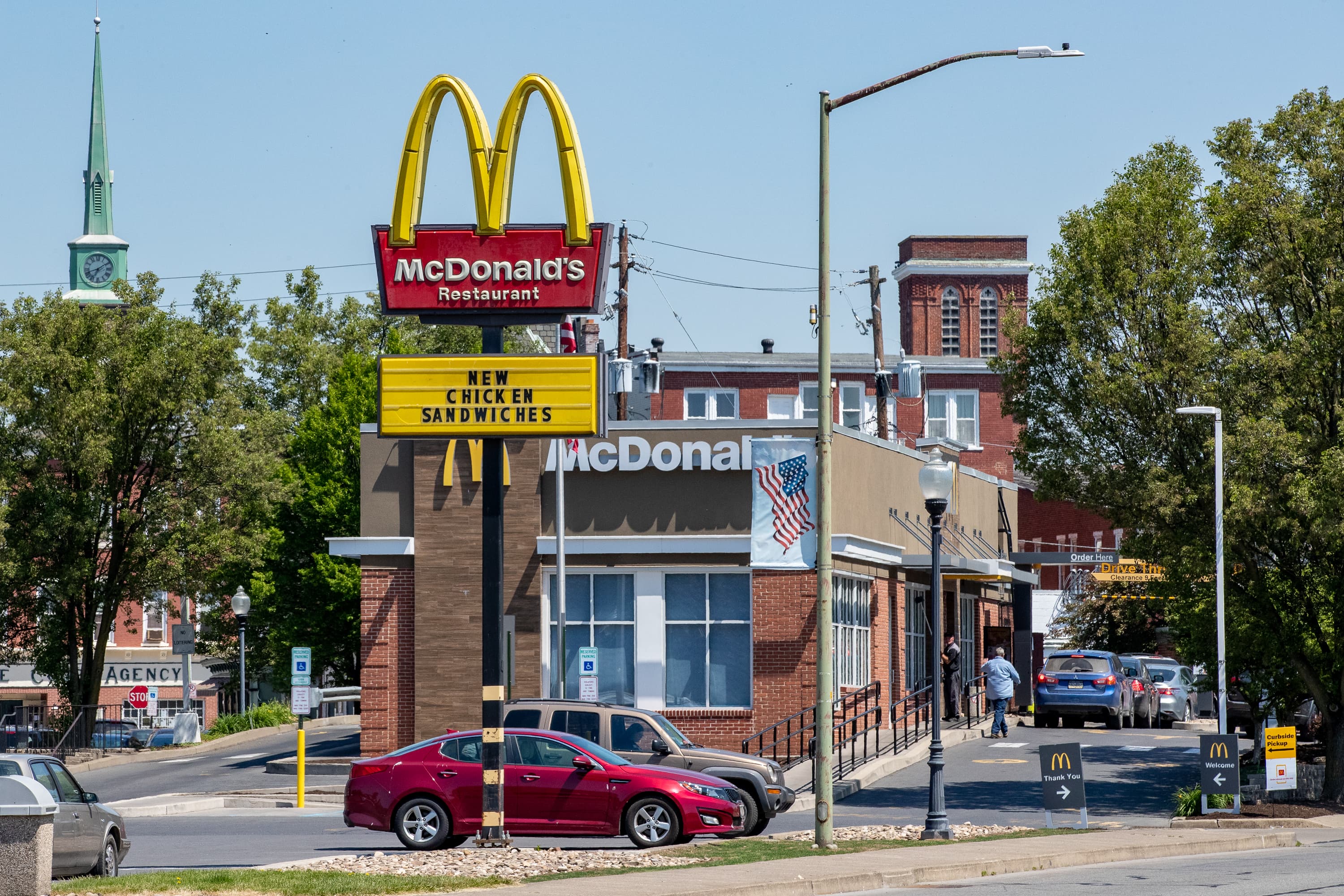
A McDonald’s golden arches logo is seen at a franchise restaurant owned by Rippon Family Restaurants.
Paul Weaver | Lightrocket | Getty Images
McDonald’s franchisees who add new restaurants will soon have to pay higher royalty fees.
The fast-food giant is raising those fees from 4% to 5%, starting Jan. 1. It’s the first time in nearly three decades that McDonald’s is hiking its royalty fees.
The change will not affect existing franchisees who are maintaining their current footprint or who buy a franchised location from another operator. It will also not apply to rebuilt existing locations or restaurants transferred between family members.
However, the higher rate will affect new franchisees, buyers of company-owned restaurants, relocated restaurants and other scenarios that involve the franchisor.
“While we created the industry we now lead, we must continue to redefine what success looks like and position ourselves for long-term success to ensure the value of our brand remains as strong as ever,” McDonald’s U.S. President Joe Erlinger said in a message to U.S. franchisees viewed by CNBC.
McDonald’s will also stop calling the payments “service fees,” and instead use the term “royalty fees,” which most franchisors favor.
“We’re not changing services, but we are trying to change the mindset by getting people to see and understand the power of what you buy into when you buy the McDonald’s brand, the McDonald’s system,” Erlinger told CNBC.
Franchisees run about 95% of McDonald’s roughly 13,400 U.S. restaurants. They pay rent, monthly royalty fees and other charges, like annual fees toward the company’s mobile app, in order to operate as part of McDonald’s system.
The royalty fee hikes probably won’t impact many franchisees right away. However, backlash will likely come, due to the company’s rocky relationship with its U.S. operators.
McDonald’s and its franchisees have clashed over a number of issues in recent years, including a new assessment system for restaurants and a California bill that will hike wages for fast-food workers by 25% next year.
In the second quarter, McDonald’s franchisees rated their relationship with corporate management at a 1.71 out of five, in a quarterly survey of several dozen of the chain’s operators conducted by Kalinowski Equity Research. It’s the survey’s highest mark since the fourth quarter of 2021, but still a far cry from the potential high score of five.
Despite the turmoil, McDonald’s U.S. business is booming. In its most recent quarter, domestic same-store sales grew 10.3%. Promotions like the Grimace Birthday Meal and strong demand for McDonald’s core menu items, like Big Macs and McNuggets, fueled sales.
Franchisee cash flows rose year-over-year as a result, McDonald’s CFO Ian Borden said in late July. The company said average cash flows for U.S. operators have climbed 35% over the last five years.







